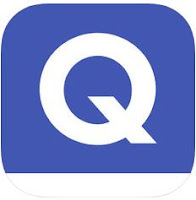Ewan recently marked the tenth birthday of TeachMeet (
Ten years on from the very first unconference for educators: TeachMeet is 10) where he shared his memories of that first meeting in the Jolly Judge. Unfortunately, I was unable to join the birthday party... but it did start me thinking about my own memories (some of which I shared on his
facebook post). It also started me thinking about the name "TeachMeet", how we came to choose it and the bullet (or bullets) we dodged not choosing a different name. I have not used this blog much in recent years abut it seemed right to post about naming TeachMeet in this blog since this is where it all started for me.
 |
| Going to the pub with Will Richardson |
Ewan has described the
proto-TeachMeet in the Jolly Judge. He claims he always had a "stick it to the man" agenda. That may be true for him. Me? I just thought it would be fun to go to the pub with
Will Richardson. Ewan also explains that this meeting was called the "ScotEduBlogger Meetup" and states (as if it was obvious) that this name was limiting and that "
TeachMeet was born..." (as if it was a painless birth). I remember the choice of the name emerging more slowly, I remember online and offline discussion, and I remember choosing just in time to get the word out for SETT (as
SLF was then called).
The discussion about "What to call this thing" mostly took place on the
Scotsedublog wiki. On 8 June 2006, Ewan created a page titled
newtechmeet and posed the question:
We need a name. Not something too bloggy, not too techy. Suggestions?
Later that same day,
John Johnston added this as the first suggestion:
How to stop worrying and love the blog.
On 10 June 2006,
I responded with the following list:
Read/Write Roundtable
Read/Write Roundup
Read/Write Rammy
Classroom 2.0
SETT 2.0
ScotEduSlam
ScotEduBlog Bash
ScotEduBlog Mashup
...I made more suggestions that day (not all of them serious) and eventually
posted TeachMeet as a possible name.
Credit where credit's due. I explain on the
wiki discussion page that I came up with the name after toying with variations on the newtechmeet page name. I commented, '
...as a wise man once said, "It's not the tech, it's the teach."' For the record, the "wise man" was Ewan McIntosh. It is something he said while at Jordanhill. I ripped it off and have been using it without accreditation ever since!
 |
| TeachMeet at SETT, 2006 |
Almost immediately after posting the TeachMeet suggestion,
I edited it to turn it into "ScotEduBlog TeachMeet". I thought any meetup would be all about blogging. And in my defence, I wasn't the only one thinking this way. For example, on a number of occasions,
John Johnston defended the inclusion of "blog" or "blogging" in the title. In retrospect, it was much better to lose the "blog" since it has allowed TeachMeet to grow and expand beyond its blogging origins.
The other mistake I made was to limit it to Scotland. I thought this was something for Scottish educators, hence my addition of the "ScotEdu" bit. I thought it was for my chums and friends of my chums. I was even more wrong about that! Thankfully, smarter people than me were in charge of picking the name!
I did have some vision though.
I suggested: "
What ever we call it, if we think it might become a regular event, we should stick a "2006" at the end." I thought this was something that had legs and that it would be repeated. OK, I thought it would be annual event, but nobody is perfect.
By the end of June, we had
the following list of possible names and had started to vote for our favourites:
Read/Write Roundtable
Collaborative Communication Colloquium
Classroom 2.0
SETT 2.0
ScotEduSlam
ScotEduBlog Bash
ScotEduBlog Mashup
ScotEduBlog TeachMeet
TeachMeet
EduBarCamp
Bloggers Anon... and on and on
Blog on
How to stop worrying and love the blog
Mashup Impossible
You've Got eLearning
Lord of the Webrings
Hello Mr Chips/Mrs Chips
Ewan called us to order, drafted
four possible logos based on the two most popular choices. (Both Ewan and I liked "EduSlam", but clearly we were outvoted!) It was down to "TeachMeet 06" and "ScotEduBlog 06". We then voted again to choose our favourite logo. On 29 June, the decision was made and
this logo was added to the wikipage.
Clearly, the right name was chosen. We ended up with a name that didn't limit us to our Scottish roots. A name that allowed us to talk about more than blogging. A clear example of the wisdom of crowds! (And, it has to be said, the wisdom of Ewan, whose gentle prompting pushed us in the right direction.)
We had a name, we had a venue, all that was needed was to organise and deliver the event. As we made our plans on the wiki, I don't think any of us knew just how successful TeachMeet 06 was going to be. But that is a whole other story...











